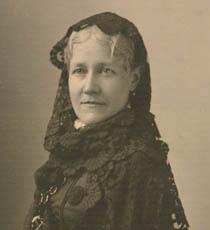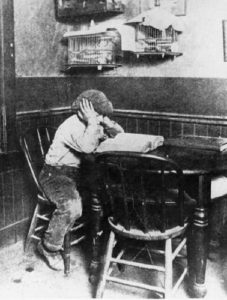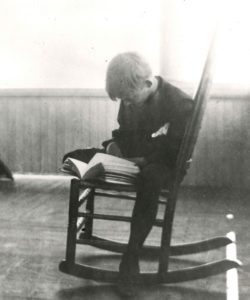Biography
 Circumstance first appeared in the Atlantic Monthly in May 1860, one of her earliest of short stories, and was included in William Dean Howells’s The Great Modern American Stories (1921). Based on a true incident in her family history – Spofford’s great-grandmother was brutally attacked by a black panther one night – this story is set in the liminal space of woods in Maine, and follows an unnamed protagonist who, after caring for a sick neighbour, travels home through the woods where she comes into contact with the Indian Devil. It impressed Emily Dickinson as “the only thing I ever read in my life that I didn’t think I could have imagined myself!” Spofford treats the sensational or implicitly ‘romantic’ event realistically. Spofford was very much a forerunner of the realist writers that followed her; also she challenged contemporary stereotype views of the feminine in literature. She published profusely and variously over sixty years, but she is know now more for her short stories than her novels.
Circumstance first appeared in the Atlantic Monthly in May 1860, one of her earliest of short stories, and was included in William Dean Howells’s The Great Modern American Stories (1921). Based on a true incident in her family history – Spofford’s great-grandmother was brutally attacked by a black panther one night – this story is set in the liminal space of woods in Maine, and follows an unnamed protagonist who, after caring for a sick neighbour, travels home through the woods where she comes into contact with the Indian Devil. It impressed Emily Dickinson as “the only thing I ever read in my life that I didn’t think I could have imagined myself!” Spofford treats the sensational or implicitly ‘romantic’ event realistically. Spofford was very much a forerunner of the realist writers that followed her; also she challenged contemporary stereotype views of the feminine in literature. She published profusely and variously over sixty years, but she is know now more for her short stories than her novels.





 Allen Lane, the founder of Penguin books, was a man who liked to be seen riding a virtuous horse though his spurs were as sharp as an abacus: money was his game and he chanced to sell his new Penguin range through his Penguincubator in 1937, in tobacconists alongside newspapers and boiled sweets, also a few placed as concessions in branches of F. W. Woolworth’s. One Penguincubator was commissioned at Charing Cross Station, placed next to a machine vending cigarettes. (6d the price of a packet of fags, 6d the price of the first Penguins, though am not sure if Lane had thought through how you were supposed to keep the books alight without a filter.) Booksellers in the Charing Cross locality objected to the Penguincubator and it was removed. It would seem that they were never successful in any case.
Allen Lane, the founder of Penguin books, was a man who liked to be seen riding a virtuous horse though his spurs were as sharp as an abacus: money was his game and he chanced to sell his new Penguin range through his Penguincubator in 1937, in tobacconists alongside newspapers and boiled sweets, also a few placed as concessions in branches of F. W. Woolworth’s. One Penguincubator was commissioned at Charing Cross Station, placed next to a machine vending cigarettes. (6d the price of a packet of fags, 6d the price of the first Penguins, though am not sure if Lane had thought through how you were supposed to keep the books alight without a filter.) Booksellers in the Charing Cross locality objected to the Penguincubator and it was removed. It would seem that they were never successful in any case.